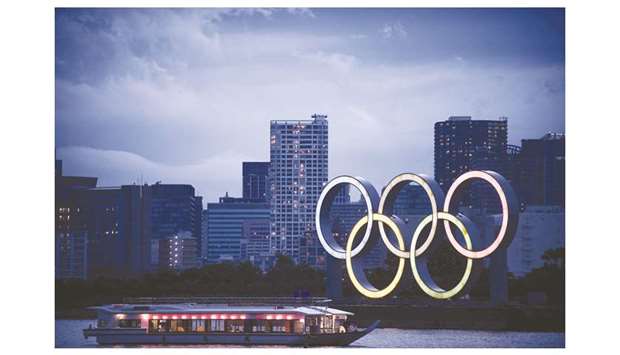The International Olympic Committee (IOC) will hear planning updates this week but concerns remain whether the postponed Tokyo Olympics can really take place next year.
Co-ordination committee chairman John Coates will bring the IOC executive board up to date in a teleconference tomorrow, and on Friday the IOC Session, congregating remotely for the first time, will also be briefed and get a look at a slightly revised competition schedule.
Despite all the activities and efforts from the IOC and Japanese organisers no one can say in which form or whether at all the Games moved from 2020 to July 23-August 8, 2021, will take place.
Or whether the Games must be scrapped after all because of the coronavirus pandemic. “It is incredibly tough, it is difficult to plan so far into the future when you are confronted with new news every day that make the
Olympics seem increasingly unlikely. This is difficult for many of them,” Max Hartung, chairman of the Athletes Germany Association, told DPA.
German Olympic Sports Confederation (DOSB) president Alfons Hoermann also says “there are concerns” whether the Games can be staged but said that for now “we are planning the Games in 2021 in all areas in a very professional way.”
Japanese organisers have said they want to stage the Games in a simpler way than originally planned in order not to run up excessive additional costs – but still the postponement is said to cost at least 6 billion dollars.
They have reached agreement with 80 per cent of the venue owners but talks are still ongoing with the investors of the Olympic Village as the flats are all to be sold.
The media and broadcast centre is also not secured yet while Olympic Minister Seiko Hashimoto was yesterday quoted by the Kyodo news agency as saying that travel restrictions for athletes and officials could be eased to allow them entry to Japan despite possible entry bans.
Hartung said that time is slowly running out and it remains to be seen how much insight IOC president Thomas Bach will allow into the crisis management and alternative planning.
“The way I wished the Games to be, with a full stadium, with friends and family and wild parties after our competition, is completely unrealistic,” the fencer Hartung said.
What the trimmed down Games would look like is discussed among the athlete, Hartung said, adding: “The most difficult question is how to keep all the people who gather there separate and still be able to call it Olympic Games.”
Hartung also called for the athletes to be engaged and have a say in the whole process. “I really want the athletes to be involved in the planning and scenario planning. At the moment, I have the feeling that only few of the crucial details are actually being communicated,” he said.
Looking at the various scenarios and deadlines, he added: “You can say: we develop a concept ABC with the athletes and discuss openly what happens in the event of a cancellation, a version without any spectators or if only certain events can be held.”
Hoermann also said it remains to be seen what the Games will look like even though the local organisers have pledged they would create an even bigger value for the whole society than first envisioned.
“We hope that a good and acceptable concept can be implemented,” he said.
The DOSB meanwhile also hopes that competition can resume in autumn, which would be crucial for Olympic athletes.
“It would be important to be able to get back into competition in the next few weeks and months,” DOSB high performance sports director Dirk Schimmelpfennig said.
“For the long-term performance build-up to prepare for the Games, sufficient competition practice is absolutely necessary to be competitive.”

A Japanese houseboat, also known as yakatabune, sails past the Olympic Rings as seen from Odaiba Seaside Park in Tokyo on July 12, 2020. (AFP)
